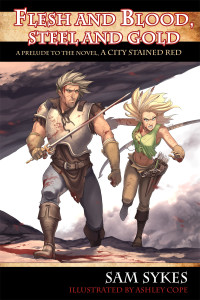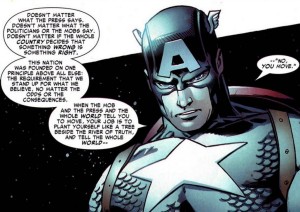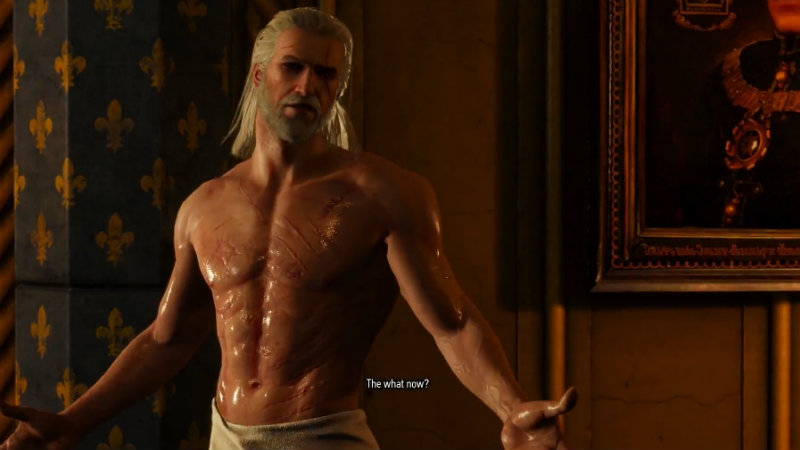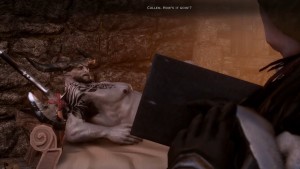Unshaken, not Unstirred
Hey. You guys want to talk about heroes?
I’ve been attending some cons lately–San Diego Comicon, New York Comicon next month, and most recently GenCon, which spurred this blogpost–and I’ve been on a few panels in which authors, editors and audience members alike have been voicing a common thought on a singular sigh.
“I miss heroes.”
Me, too, friends. Me, too.
If you’ve been around fantasy fiction for the past few years, you might have noticed the phase where we all decided to paint our nails black, shop at Hot Topic and post moody poetry to our LiveJournals known as “grimdark.”
There are plenty of debates on what this is defined as, so I won’t waste much time discussing that, but it is usually hallmarked by characters who lack heroic qualities. They are often practical to the point of cruelty, cowardly to the point of irredeemable, vicious to the point of sadistic in the name of a world that demands such of them.
You can see why people weary of this.
But what people often forget is that they came about as a response to extremely sanitized fantasy stories of the bygone day where you had a triumphant hero chosen by destiny who sets out with his companions–the funny guy, the serious guy and the girl–who will probably kill a race that is all irredeemably evil as a matter of narrative so don’t waste time looking for deeper characterization there seriously stop it, kill an enemy with an unambiguously evil title like The Destroyer, The Annihilator, The Scourge, or Jeff, and then get the girl in the end (because why else would she come along).
…and I don’t think we want to go back to that.
There are some people who call for a return to the morally pure, ethically flawless hero. I can’t get behind that. Besides just being dull, there’s always the matter of realizing that ethics and morals are subjective and forever changing.
But I do think we crave something from our fantasy that we’ve been missing in grimdark. And it is this.
The core of the character.
It’s a tall order, being a fictional character. People want you to be flawed, difficult and broken so that they can sympathize with your struggle and see their struggles in you. But people also want you to be flawless, always right and never hesitant so that they can see something to aspire to and take comfort in escaping their problems.
You could be forgiven, as an author, for viewing this as an impossible task.
But you could also be forgiven, as an author, for being frustrated when an audience doesn’t understand that characters change: they grow, they think, they evolve. They have bad opinions, they sometimes change them and sometimes change back. They are brave until they’re scared, they are strong until they fail, they are weak until they fight back.
All good characters should do this.
But some good characters…shouldn’t change.
Not completely.
We talk occasionally about character-driven stories: stories where the decisions made by the character are what makes things happen, rather than the plot aligning to give them something to do. But how do we make characters who drive the story?
We make a character with a core.
Some characters need to have, at their very center, something unshakable in them. Something that can’t be broken, that can’t be destroyed, that can’t be altered. Their outer layers can be filled with doubt, with fear, with lust and all sorts of things. But when those are stripped away by conflict and loss, there is something at their core that keeps them going.
The plot is a lake. And there is a huge stone thrown in the lake–it can be another character’s decision, it can be an event, it can be an unknown disaster or just an unfortunate twist of fate. The events of the story are the ripples across the water that go until they hit a rock jutting out of the middle of the lake. Then, the force changes and those ripples turn away from that rock and radiate out from it.
That rock is the core of the character.
It can be a concept. It can be a feeling. It can be a message.

In The City Stained Red, Lenk is the character with the core. He is the one that suffers a lot. He is the one that does a lot of fighting. He is the one that fails the most. But he is also the one that continues to get up. He is the one that never gives up. His core is that he can’t stop fighting, no matter what. And the plot resonates from this.
But let’s look at some other examples. Here’s one you might be familiar with.

Captain America is a character that actually might be mostly core. His entire concept is that he is uncompromising, unwilling to budge (as you can see from his dialogue there), and unwilling to yield. Sometimes this is simple: bad guy wants to blow stuff up, Cap says no. This can sometimes cause some problems, such as in the Civil War arc (before it got stupid). But the concept is the same: the plot bounces off of Captain America and then he drives the action.
Or you might recognize this example here.

You might be thinking: “How did this guy affect the plot? He’s dead.”
I refuse to apologize for spoilers. There’s a statute of limitations on these things. And besides, his death doesn’t change the fact that Ned Stark was the guy in Game of Thrones that exemplified what I’m talking about best. He refused to compromise, refused to forsake honor or what he knew was right for the sake of making things run smoothly. Even when he knelt, he did so because he had a core within a core: above even honor, he held his family as his most important thing.
And, like the waves rippling off the rock, pretty much everything in Game of Thrones is a reaction to Ned Stark’s death.
These are all fine examples. But in my opinion, no one in American fiction exemplifies the concept of a character with a core more than this guy.

Yes.
Homer Simpson is the unshakable moral hero.
He is greedy. He is slow-witted. He is gluttonous. He is cowardly, scheming, quick to anger, slow to reason, strangles his kids now and again, does a lot of terrible things.
And Homer loves Marge.
This is the core of his character. Homer loves Marge and would never violate that. When he hurts her, he makes it right. When he’s gone too far for her, he dials it back. He does misdeeds to accomplish what he thinks will please her and tries his best to keep her happy. And no matter how much shit can happen to him in 30 minutes, that core can’t be altered.
Or can a core be altered?
…yes. Despite everything I told you about how a core can’t be altered, that’s just one rule of writing. And writing is about breaking rules. But to break them, you must know them.
And when a character’s core is altered, it’s a big fucking deal. Or it should be.
That’s why Ned Stark died shortly after his core was shattered. There was nothing left to him. And I hear they’re splitting up Marge and Homer in the newer seasons of The Simpsons, so that’s why that show still sucks.
But you get what I’m saying.
Consider this in your writing: who, in your story, has a core? What is that core? When they’re up against the ropes, what will that core do? What effects will that have? And what effects will that effect have?
You don’t have to plan out every reaction for this to work. You just need to know what happens when the hero gets back up when he should stay down, what happens when Captain America won’t compromise, what happens when Ned Stark won’t forsake honor, what happens when Homer goes too far.
Consider this in your writing. But also consider it in the writer.
What’s your core? When you’re rejected by publishers, when you’re shit on by reviews, when sales are shitty and no one seems interested in you, when a horde of angry internet users decide you’d make a fun punching bag, what will be left after you get beat up?
Find that core. Know it can’t be broken. And all those tragedies won’t matter.
Unshaken, not Unstirred Read More »









